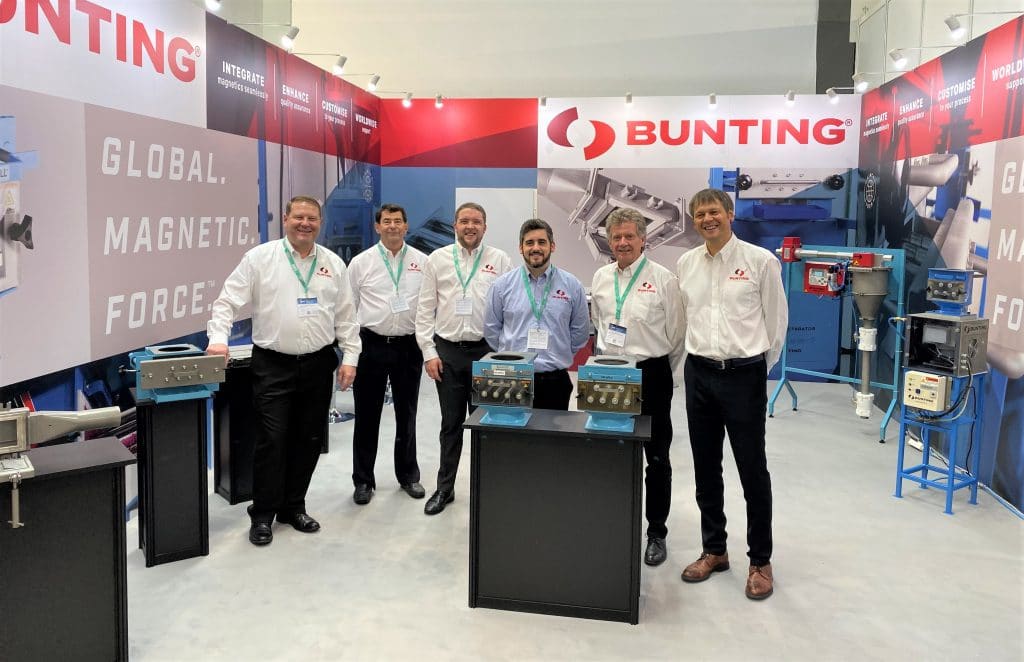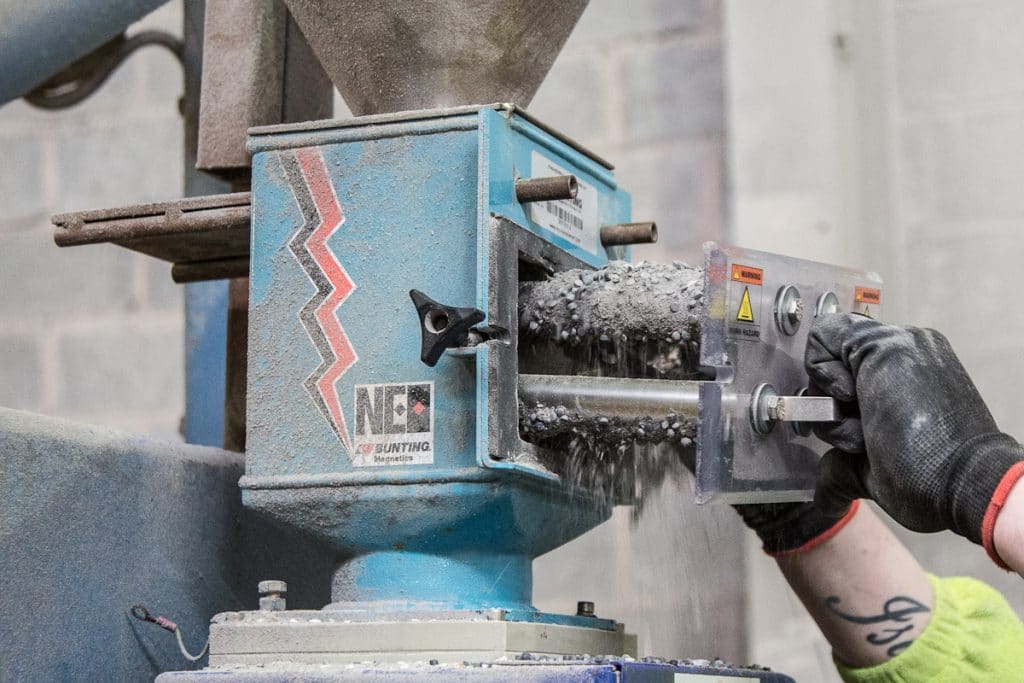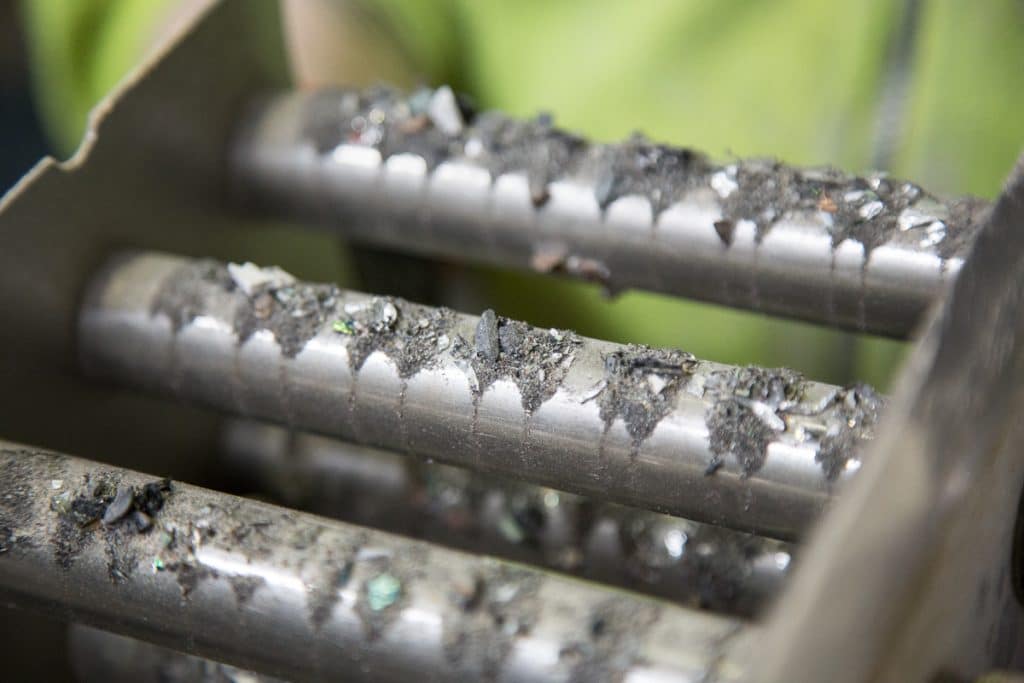Hot Topic of Plastic Waste
By Paul Fears | 11 December 2019
This article was first published as ‘The Big Story’ in the December 2019 issue of the publication British Plastics and Rubber.
The global backlash against plastics and plastic waste was top of the agenda at this year’s K Show (Dusseldorf, Germany 16-23 October 2019). Indeed, many of the people visiting the Bunting stand were plastic waste processors looking for metal separators.

Plastics-focused exhibition
The K Show is the largest plastics-focused exhibition in Europe and attracts exhibitors from all over the world. There has been a huge shift in public opinion on plastics since the last K Show in 2016, resulting in a raft of legislative changes as politicians align themselves to the masses. This change in attitude originated in Europe, but has now spread globally as organisations and countries highlight the issues associated with poorly managing waste.
At the K Show, industry experts discussed how to balance the real benefits of using plastics against the demand to reduce and restrict its use. There is a great deal of misinformation that fuels the condemnation of plastics, often ignoring the facts and with the aim of reducing usage. Nevertheless, there is a need to improve the way countries manage waste, but this is not only limited to plastics.
For plastic waste, the political focus has driven a growth in the number of specialist recycling companies. This was clearly apparent at the K Show, where a large proportion of the companies visiting the Bunting stand wanted to find solutions to the issue of non-plastic contamination in waste such as metal, glass and stone. As with many waste materials, secondary plastic is commonly contaminated with metal. Effectively removing both ferrous and non-ferrous metals is essential to prevent damage to processing plant such as granulators, improve the performance of other sorting processes, and to ensure end-product purity. Ferrous metal is the easiest contaminant to remove using one of a wide range of magnetic separators. Non-ferrous metals are ejected from the process using eddy current separators and metal detectors.
One of the many challenges facing companies processing plastic waste is the economic viability. There is a long list of companies who have set up to process plastic waste only to fold within a very short time. The political will to find a solution to plastic waste management may address this problem, providing vital funding and legislative support. Certainly, in some countries such as the UK, the whole collection infrastructure needs revamping.
Technological developments have improved the recycling process to improve the quality of the end-product. However, as with many secondary materials, there are presently limitations to the use of the recovered, sorted and cleansed plastic although this is rapidly evolving.

Bunting has worked with companies successfully processing plastic waste since the 1980s such as EcoVyn Ltd based in Wrexham North Wales. EcoVyn is at the forefront of PVC compounding and brings pioneering new technology to the market place. They offer one of the most advanced and innovative production processes in the UK producing reprocessed, blended and virgin compounds for a variety of applications. The company use a high proportion of plastic waste, of which 80% is post-consumer. Presently, EcoVyn processes 1000 tonnes per month of good quality reclaimed plastic waste, which they plan to increase to 16,000 tonnes per annum. The cleansed plastic waste is blended into virgin material, resulting in a 90% output of grade A product. Waste generated during the manufacturing process is also recycled leaving less than 1% being discarded. After the installation of Bunting magnetic separators, EcoVyn reduced the amount of unusable waste by 94%.

The plastics industry faces great uncertainty over next three years leading up to the next K Show in 2022. With plastic waste high on the political agenda and in the spotlight of the general public, changes are inevitable. The resultant effect on the plastics sector remains very unclear.
For additional information on equipment used to separate and recover metals, please contact us on:
Email: press@buntingeurope.com
Telephone: +44 (0) 1527 65858
Photographs 2 and 3 taken by Paul Fears Photography
Follow us on social media